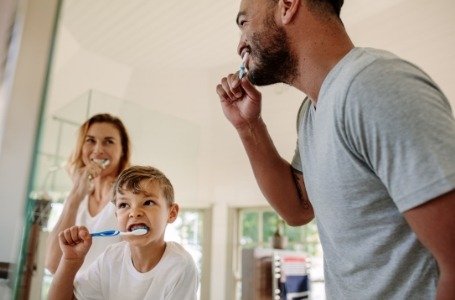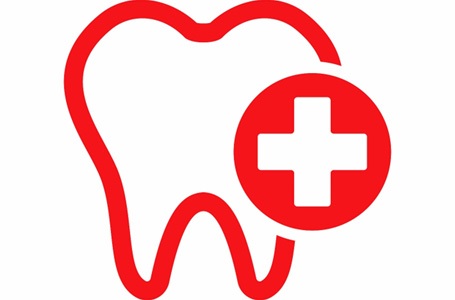 Emergency Kid’s Dentistry – Allen, TX
Emergency Kid’s Dentistry – Allen, TX
Immediate Dental Care Right When Little Smiles Need It

Because kids can be boundlessly energetic and comically clumsy, they’re incredibly vulnerable to accidents that may harm their pearly whites. Not to mention, it takes time for kids to hone their brushing and flossing techniques, so they might develop cavities that result in serious toothaches. Whatever the case may be, you’ll need an emergency dentist, and our team can provide immediate care right when little smiles need it. Dr. Justin and Dr. Sage will relieve your child’s dental discomfort while also setting your mind at ease. As parents themselves, they know how scary these situations can be! Please don’t hesitate to call us for emergency kids' dentistry.
Why Choose Sprout Dentistry for Kids of Allen for Emergency Kid’s Dentistry?
- Friendly, Expert Team Led by Two Board-Certified Pediatric Dentists
- Same-Day Emergency Dental Appointments
- Leading-Edge Dental Technology for Comfortable, Precise Treatments
Common Dental Emergencies

Staying calm when your child is hurting is far from easy, but if their pain involves their teeth, calling our dental office is the smartest thing you can do. While we have you on the phone, our team can walk you through basic first-aid tips and schedule an appointment for your little one to be treated right away. Please don’t hesitate to call us if your child is dealing with any of the following.
Cost of Dental Emergencies

No two kids are exactly alike, and neither are any two dental emergencies or their costs of treatment. After you’ve brought your child in and we’ve performed an emergency exam, we’ll recommend treatments that will quickly relieve their pain and prevent the problem from recurring. To make emergency dental care for your child more budget-friendly, our dental office is in-network with multiple insurance plans, offers low-interest financing, and even has an in-house Wellness Plan that makes saving simple.
Preventing Dental Emergencies

Despite childproofing nearly everything in your house, putting up baby gates, and taking all sorts of other precautions, it’s almost impossible for you to prevent your little one from experiencing some bumps and falls every now and then. With that being said, there are a few measures you can take to reduce their risk of a dental emergency. Read on to learn some of the most practical ways to safeguard your child’s smile.
Dental Emergency FAQs

Reading through the above information can give you valuable insight into the types of dental emergencies we are prepared to help your child address. However, to be as prepared as possible, you may still have some questions on your mind. Well, we want to help! Keep reading for the answers to some of the most frequently asked questions we get from parents regarding a pediatric dental emergency.
Will My Child’s Toothache Go Away on Its Own?
Despite popular belief, toothaches do not heal on their own. In fact, a once painful toothache that has “disappeared” may actually be an indicator the infection has damaged the nerve of the tooth! Therefore, it’s always a good idea to schedule an appointment with your child’s dentist right away. From there, they can determine the root of the problem and put a plan in place to restore the look and function of your little one’s smile.
Should My Child Visit the Emergency Room First for Dental Emergencies?
If a dental emergency has resulted in a potentially life-threatening condition, like difficulty breathing or a broken jaw, then you should take your child to a local emergency room first. However, ERs typically don’t have dentists on staff, meaning they won’t be able to address dental emergencies effectively. Therefore, with all other smile-related injuries (lost filling, knocked-out tooth, etc.), your first call should be to a pediatric emergency dentist .
My Child’s Chipped Tooth Doesn’t Hurt. Do They Still Need a Dental Visit?
Even if their chipped tooth doesn’t hurt, it’s a good idea to schedule an appointment with their dentist. Although they may not be in any pain, the inner layers of their tooth could be vulnerable to damage. Plus, a chipped tooth may break further without professional attention, resulting in sensitivity, soreness, and overall discomfort. With that being said, your child can most likely afford to wait a day or two until their appointment if needed. Just make sure they don’t put off seeing their dentist for too long.
What Should I Keep in My Child’s Emergency Dental Kit?
From a lost filling to a knocked-out tooth, dental injuries can be anxiety-inducing. To make the entire experience as stress-free as possible, preparation is paramount. You should keep an emergency dental kit for your child, and everyone in the family, accessible with these essentials:
- A storage container large enough to fit a tooth or restorations
- Sterile gloves
- Gauze pads
- Cotton balls
- Dental cement (or other temporary filling material)
- Denture adhesive
- Petroleum jelly
- Anti-inflammatories such as ibuprofen
- Orajel
- Floss
- An ice pack or cold compress
- Contact information for a pediatric emergency dentist
 More to Explore
More to Explore
Checkups & Cleanings Cosmetic Dentistry Lip & Tongue Tip Nightguards Restorative Dentistry Sedation Dentistry Tooth Extractions View Our Services
